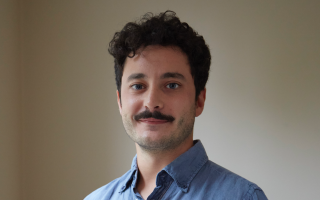Stefano Merlo
Biography
After studying Economic Policy and Political Theory at UCL, I am now completing a PhD in Political Economy and Political Theory at John Stuart Mill College (VU Amsterdam).
Alongside teaching economics and political science courses, I have also enjoyed organising events and conferences that deal with questions at the intersection of the three PPE disciplines. At the PPE College, I organised a series of public discussions between philosophers, economists and political scientists on, for instance, the issue of public debt management in the Eurozone and the ethics of tax evasion.
In 2021, I was a visiting PhD researcher at the European University Institute (School of Transnational Governance) and at the Hertie School of Government (Jacques Delors Centre).
I returned to UCL in 2023, having taught in the Department of Goverment at the London School of Economics and Political Science, and in the MPP programme at the Blavatnik School of Government (Oxford).
Research
How should countries manage their public debt and inflation if they truly want to be sovereign and democratic? I try to answer to this question by combining research on macroeconomic governance with democratic theory.
In particular, I use the neo-republican conception of freedom as non-domination to normatively evaluate different institutions like central banks, fiscal councils and Eurozone lending institutions. There are three main areas in which this idea of freedom can be useful:
- Lending policies: how can states’ sovereignty be safeguarded during sovereign debt crises when they need loans and support from international lending institutions like the IMF or the ESM?
- Independent agencies: is it possible to democratically control the influence that expert bodies exercise over macroeconomic policymaking, given the existence of potentially problematic information asymmetries between decision-makers and experts?
- International macroeconomic interdependence: who should internalise the macroeconomic externalities that result from the democratic exercise of states’ powers?
Publications
- Journal articles
- Merlo, S. (2023) ‘A Republican Assessment of Independent Fiscal Institutions’, Journal of Politics, 85(2), pp. 484–495.
- Crum, B. and Merlo, S. (2020) ‘Democratic Legitimacy in the Post-crisis EMU’, Journal of European Integration, 42(3), pp. 399-413.
- Merlo, S. (2023) ‘Self-fulfilling Crises in the Eurozone and the Institutional Preconditions of Republican Sovereignty’, Review of Social Economy, 81(1), pp. 130-153.
- Merlo, S. and Fasone, S. (2021) ‘Differentiated Fiscal Surveillance and the Democratic Promise of Independent Fiscal Institutions in the Economic and Monetary Union’, Swiss Political Science Review, 27(3), pp. 582–600.
Teaching
In 2023/2024, I will be teaching ‘Public Sector Economics’ (POLS0081) with Dr Valentina Amuso. I also supervise postgraduate dissertations in international public policy, public policy and international relations.
 Close
Close


